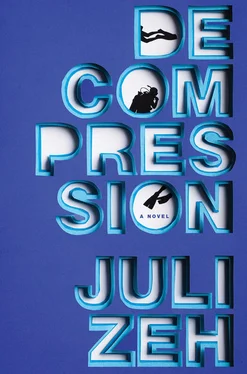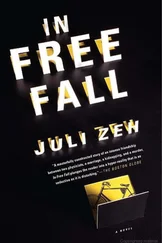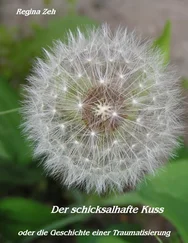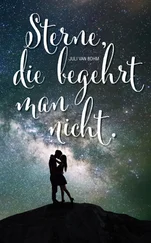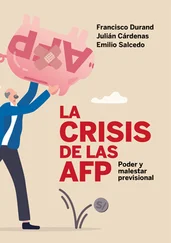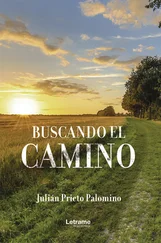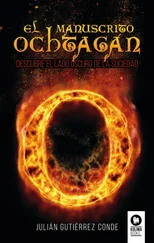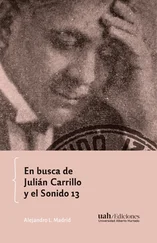Theo wanted another drink, so he went to a pub and I took a taxi. Antje’s car wasn’t parked in front of the house. That was a sign. I immediately rang the doorbell at the Residencia. Sven opened the door and pulled me into his arms. I pushed him away. I wanted to speak as soon as I could, before I changed my mind .
Some creased typewritten pages were lying on the coffee table. I recognized the font at once: Theo’s old travel typewriter. He’s got it with him in case some inspiration comes to him while we’re on our trip. The thing is hellishly loud. He must have used it when I was diving without him. The sly dog. And him constantly moaning about his ongoing writer’s block. There can’t be any doubt that the story’s about me. The old man likes writing about women. He calls them Lola, Nora, or Josa, lights up the dark torture chambers of their souls, and describes with gusto the ways they destroy their male victims. He probably wrote the piece especially for Sven. The title could be “So You’ll Know What You’re Letting Yourself In For.” But the text appeared to have missed its intended effect. Sven was still talking to me. Or rather, listening. The words just came pouring out. Tears ran down my face. The pressure must have been enormous. It was the first time I’d ever told anyone. As I spoke, I had a lot of trouble with word choice. Should I say dick or penis, pussy or vagina, asshole or anus? In any case, what I told him sounded harrowing. It frightened even me. It was as though I was living through what I was talking about, really living through it for the first time, right then. As though it became steadfast reality only when Sven heard it .
Sven said, Everything’s going to be all right. And then, later: I’ll kill the son of a bitch. I wonder whether one might be the result of the other. Of course, he won’t kill Theo. Both of us know that. I was sitting on Sven’s lap. He held me tight, rocked me, kissed me, shielded me, put me back together. And then Antje came in. Sven didn’t even try to defend himself. He’d probably decided a long time ago. He needed only a final push, just like me .
I left while Antje was talking. Not because I found it disagreeable, but out of respect. Later I heard the dog, and then Antje’s car drove off. Still I remained seated at the table in the Casa Raya, staring into the darkness. I felt it would be better to let Sven spend the night alone, even though everything in me cried out to him. The old man came home and fell into bed at once. I spent the rest of the night out by the sea .
Now I’m looking at the rose-colored sky and wondering if the future isn’t just a mug’s game. In half an hour Sven will drive his VW van onto the sandlot and toss out his cheery “Good morning,” as though every morning’s a good morning, especially this one. The old man didn’t come looking for me — maybe he’s done us all the favor of dying in his sleep. The sea is calmer than usual, as if its mind is elsewhere. The obvious indifference of the elements soothes me somehow. Do what you want, the sky and the rocks and the ocean say. We really don’t care. How many of you do you think have sat gaping at us and thought yourselves special? Doesn’t bother us. You all scuttle around and make a huge fuss and then you go away, one after another. Nothing remains from your little catastrophes; whole islands go missing now and then in ours. That at least is something, although not much, because after all, who cares about an island?
The smartest thing to do in the face of so much indifference is simply to be glad. To be happy. Sven and I are a couple now. What that means exactly will reveal itself soon enough .
Tuesday, November 22, 2011. A near-perfect day. Light north-northeast wind, no more than twelve kilometers an hour. Expected high temperature: twenty-four degrees Celsius, seventy-five degrees Fahrenheit.
A typical November morning, in other words. I stood on the terrace in my boxer shorts, cup of coffee in hand, and thought about damp cold and the smell of rotting cabbage. About the ground fog that hung over the fields until noon, the wetness that crawled under your jacket and numbed the skin on your thighs as you walked. I thought about the days when the sun went down before there was ever any proper daylight. No wind, no sea, no sky. Just mute silence, and behind it the hum of the Autobahn. The silhouettes of apple trees with all their leaves gone and a couple of wrinkled brown fruits still hanging on. The silhouettes of my parents, hand in hand, my mother (helped by shoes and hairdo) taller than my father. And about knee-high, something that was always in motion and never cold: Todd the First, practically overcome by the sheer joy of a family walking party. “Cold, but lovely,” my mother would say. Antje was also somewhere in that fog, still no higher than a fence post, her hair gleaming blond. There was the memory of the summer, the certain knowledge of the fall, the prospect of a wet winter, and the abstract hope for a spring that still lay much too far in the future. There was the year and the season. Had anyone told me fourteen years ago I’d be on the island in November and I’d miss, of all things, the bad weather in the Rhine Valley, I would have told him he was out of his mind.
I stood there drinking my coffee in the warm breeze that morning and longed for temperatures a few degrees below freezing. For fumes rising from my cup. For the possibility of putting on a sweater. I’d slept wonderfully in the big bed, a deep, dreamless sleep that stripped my soul and promised a new beginning. When I woke up, the silence in the house — no radio, no clattering dishes, no dog’s paws — had reminded me of winter.
Twice a year, Antje flew to Germany alone to spend a week with her family. I thought of those days as holidays, even if I had to work and the annoying task of washing the dive suits every evening fell to me. Not that I was usually tormented by her presence, but her absence opened up rooms. I stretched out. I did a lot of thinking, without being able to say later what it was I’d been thinking about. By the end of the week, having stretched myself out and thought myself out, I’d look forward to the moment when the place would come back to life.
Lights went on in the Casa Raya. I saw Theo stagger into the living room and over to the little kitchen, where he paused, as though he couldn’t remember what all those appliances were for. Then he filled the espresso pot with water and set it on the stove. He stood in front of the open refrigerator and drank something from a bottle. I couldn’t tell whether it was juice or wine. Though as a matter of fact, bottled juice wasn’t available on the island. Theo scratched his head with his right hand and stuck his left down the back of his pajama pants. He ate a few spoonfuls of something in the fridge, maybe olives or caviar. He emptied the bottle and dropped it on the floor. He poured out his coffee, took a sip of milk from the open carton on the counter, and immediately spat into the sink. Hadn’t Antje told them they should buy only long-life milk on the island? Anything else went bad almost at once, even in the refrigerator. Theo took his black coffee into the bedroom.
When I envisioned the future, I imagined a contradictory picture. I firmly believed that Antje would come back. She’d never spent more than a week away from home. I couldn’t manage the diving school for longer than that without her. She was surely staying in some girlfriend’s house, and I figured she’d keep up the Ricardo act for a few days in order to punish me. Then, one evening, suddenly she’d be there again. At the same time, I saw myself waking up in the morning and gazing at Jola, asleep beside me in the double bed. I saw Antje lying in the bathtub and Jola standing before the mirror. While Antje made breakfast, Jola set the table. I saw Jola sorting invoices while Antje sent e-mails to clients. Snow was falling outside the windows.
Читать дальше
